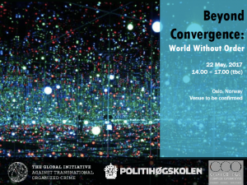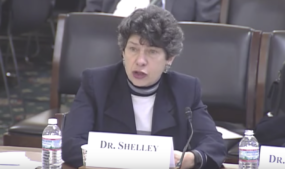Posted on 27 Oct 2016
“The world order built upon the Peace of Westphalia is faltering. State fragility or failure are endemic, with no fewer than one-third of the states in the United Nations earning a ‘high warning’—or worse—in the Fragile States Index, and an equal number suffering a decline in sustainability over the past decade.”
In Beyond Convergence: World Without Order, edited by Hilary Matfess and Michael Miklaucic (published 2016), a range of different authors – amongst them several staff members and experts from the Global Initiative against Transnational Organized Crime – examine different areas where a range of illicit actors (international terrorists, globally networked insurgents, and transnational criminal organisations) exploit, thrive on and keep fragile states.
The book is divided into 4 parts:
- Part I, Slouching Towards Dystopia, offers a vision of a world unmoored from the organizational principles of the Westphalian order. This part imagines the worst-case scenarios if current assaults on the international system go unchecked.
- Part II, One Network, examines the expansion of existing criminal networks and explores their operational characteristics and policy implications.
- Part II, Pandora, describes recent innovations that complicate the global threat landscape.
- Part IV, A Toolbox for the 21st Century, offers responses to these challenges; the authors offer tangible policy options to mitigate the threats.
Throughout the book, four themes emerge which should be taken serious by policy makers.
- American confidence that the end of the Cold War also denoted the end of the global ideological struggle was premature.
- New technology not only reduces the “capacity gap” between conventional and unconventional forces, but also introduces new vulnerabilities to America’s security and that of its allies.
- Many of the states within the international community are at a severe handicap in their efforts to mitigate the unprecedented threats to their sovereignty.
- Strong states, led by trusted, capable governments that are accountable to their populations, are the most effective line of defense against these threats.
Global Initiative Contributors are Tuesday Reitano (with Andrew Trabulsi; Virtually Illicit: The Use of Social Media in a Hyper-Connected World, Mark Shaw (“We Pay, You Pay”: Protection Economics, Financial Flows, and Violence), Karl Lallerstedt (The Neglected Mega-Problem: Illicit Trade in “Normally Licit” Goods), as well as a number of Global Initiative Network Members, including Raj Samani and Phil Williams.
The complete publication can be found here: Beyond Convergence: World Without Order



